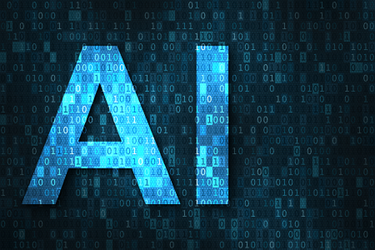What AI Means For The Digital Economy

AI is a landmark technology that has already changed the world for the better. AI has given rise to a reality where processes that used to take people days now take machines a couple of minutes.
This explosion in productivity and possibility has helped to make artificial intelligence one of the biggest and most enticing technologies in the world today.
AI is affecting so much that it is unalterably shifting the global economy to a real-world post-scarcity scenario.
AI Is Proliferating Quickly
Think AI is just for big business? Think again. Small businesses have already been affected to an incredible degree where now almost anyone can open and operate a large storefront relying on the power of AI.
The viability of these apps makes the overall small business sector stronger which in turn benefits local economies tremendously. The same is true for big business as well, AI has changed the standard of productivity and efficiency so dramatically that some of the largest companies around the world have changed the way they operate to accommodate AI.
Ecommerce Automation
Small businesses are leveraging automation to give their digital goods and services a fighting chance.
In the vast sea of competition, of the hundreds of global e-shops and thousands of digital marketing agencies, only a percentage, a cruel ratio, will survive and thrive.
Automation helps lower costs for small businesses by automating marketing activities, digital sales, and even multifaceted tasks like shipping, fulfillment, and customer service.
Big Business Apps
Artificial intelligence is also changing the landscape of big business. How do businesses optimize, strategize, and analyze their performance in a global market? With the help of smart software that can track, analyze, and predict outcomes based on key metrics set by an experienced team.
Everyday AI
Finally, we see that AI is permeating I not the quotidian, the mundane. Calendar assistants, email assistants, chatbots, and automated task delegators are all in use. Boot up a Slack bot to help poll employee opinion.
Switch on an email AI to dynamically set appointments with clients. Or call upon a virtual nurse to help manage your symptoms with a few swipes on your smart device. AI is interwoven into everything in our everyday lives, from email filtering to predictive analytics on volatile stock exchanges.
AI And Automation In A Post-Scarcity Society
What do AI and automation do for us on a global scale? What are the economic ramifications of replacing repetitive tasks to a machine? First, you have job loss in some of the first automated vocations.
Self-driving cars replace long-haul truckers, pneumatic arms replace factory workers. But what happens when AI can start to do everything at any time? What happens when the price to manufacture goods drastically lowers? And anything that anyone wants can be created, sent, and shipped on demand?
You are left with a post-scarcity society. Supply is no longer an issue. Demand then becomes almost irrelevant. It’s a world where creating value means more than currency, crypto or otherwise.
Conclusion
AI truly exploded in popularity with the introduction of personal assistant AIs like the Google Home AI and Amazon Alexa which have become household items in a matter of years. These personal assistant AIs are responsible for a massive influx of new data and for creating a new and profitable environment for the development of AI.
What is most interesting, however, is the effect that AI is having over the economy at large and how value is being assigned in this new age. For instance, AI has obliterated many of the behind the scenes costs of running many of the world's biggest businesses without losing a drop of efficiency.
What happens when the power of AI spreads to the bulk of working positions? Then you have an economy where the individual must be considered outside of their direct impact on business. AI has begun to run so much of our lives that it will invariably change how we interact with our economies and our jobs.
